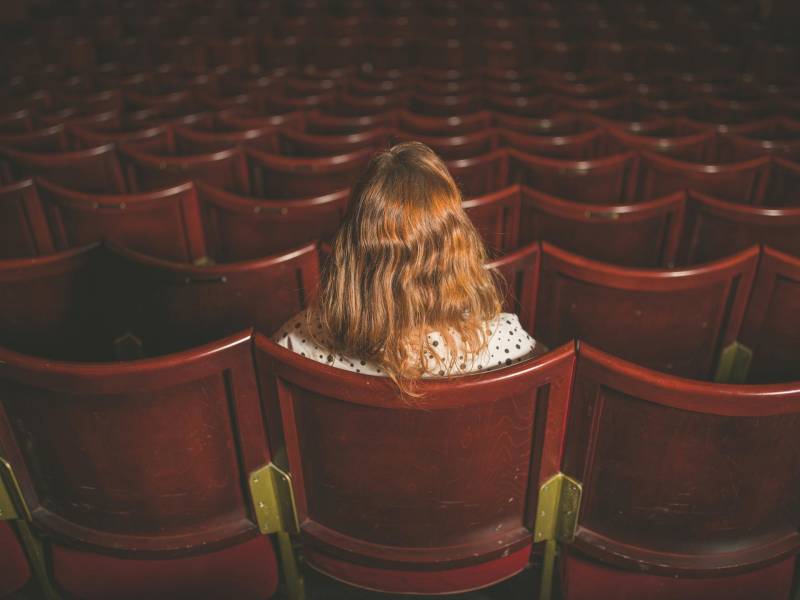Two weeks ago, I wasn’t worried about the coronavirus.
Two weeks ago, I was at a play. Where, in the middle of it, the woman sitting next to me started loudly chastising the person behind her for coughing. You gotta be kidding me, I thought. Is this some sort of a joke?
Two weeks later, this is no joke.
This week at a different play, I counted swaths of empty seats throughout the theater.
Watching the play—Toni Stone, about the first woman to play big-league professional baseball in America—was a transcendent experience. It delivered those of us who saw it from the world’s news for three hours, pulling us into a story that made us laugh, made us cry, and brought hundreds of people together in a communal experience. What a salve for the world right now, I thought on my way home.
It was opening night. The play closed the next morning.
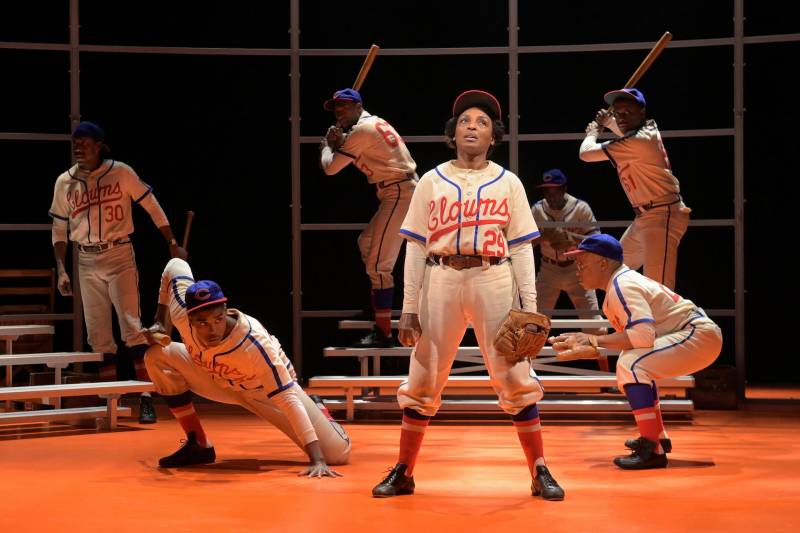
Just about everything else closed that morning, too, if it hadn’t already. One thing is clear now. Our civic life has ground to a halt. As part of my job, I’ve been updating a list of closures, cancellations and postponements of concerts, plays, museums, and events for six days straight. And at this point, I can say this with authority: Everything is canceled. Like, everything.
In the Bay Area, that means all concerts at the Chase Center, Fox Theater, Fillmore, Bill Graham Civic Auditorium, and the Oakland Arena. It means musicals like Hamilton and Harry Potter and the Cursed Child. It means museums like SFMOMA, the de Young, the Legion of Honor and the Asian Art Museum. It means Warriors games, Giants games, A’s games. It means institutions like the Exploratorium, City Arts & Lectures, SFJAZZ, the San Francisco Symphony and the Commonwealth Club.
The outlook grows even more bleak when you look nationwide, and add essentially all professional sports, Coachella, most schools, South by Southwest, all live music tours presented by the country’s two largest promoters, and the entirety of Broadway. Even Disneyland is closed.
How can we get by when the arts, so much a part of civic life, are shut down? In ways that are unlike any other aspect of life, the arts foster human connection. And human connection, especially in times like these, is very, very important.
Without it, stuck in our hovels apart from each other, rarely seeing each other face to face, it’s much easier to fall into anxiety and worry. I know. It’s started to happen to me.
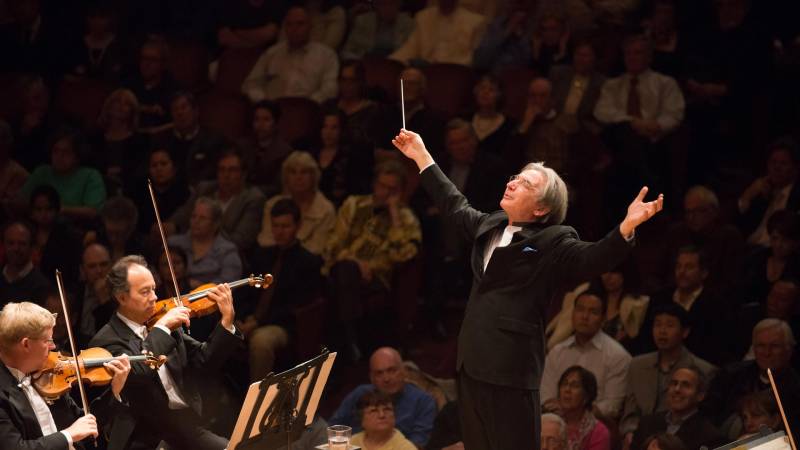
And there’s plenty to be worried about. President Trump’s speech on Wednesday night, meant to calm the country, did the opposite. Peppered as it was with deflections, denials and misinformation, corrections needed to be issued immediately afterward by his own staff. The next day, the stock market fell by 10%—its worst day since 1987.
Meanwhile, out of major countries, the U.S. is the least-tested nation per capita in the world for the coronavirus. We’ve been told insurance companies will waive copays for tests, which is nice if you have insurance, or if you can actually find any tests. People with symptoms of coronavirus are on hold with medical providers for hours, given the runaround from agency to agency and back again. You may have even seen that some experts reportedly predict that 40%-70% of the country’s population will eventually be infected.
And Tom Hanks. Tom Hanks has the coronavirus. It’s as if God chose the most beloved celebrity in the country to make a point to us all about how serious this is.
It’s a lot. Take a breath. Deeply. (And now take another.)
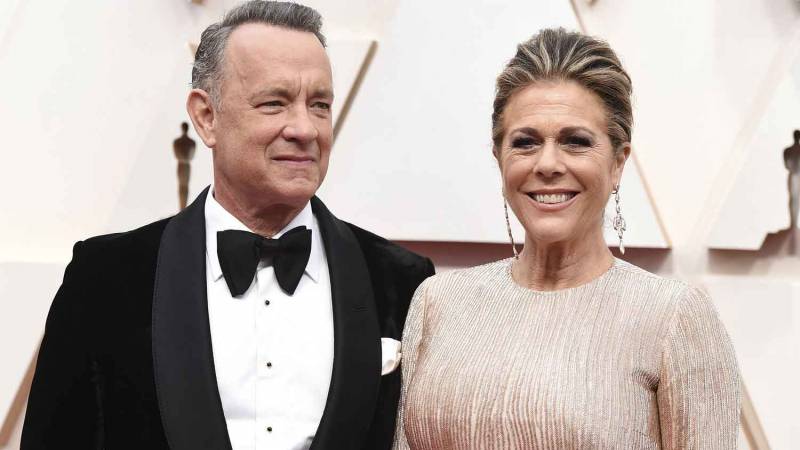
With so many of us working from home, self-quarantining, staying inside, talking to each other with garbled audio quality over 2-inch screens, it’s all too easy to get sucked into doomsday thinking.
My first tip is to take breaks to find your joy, whatever that may be. Bake bread. Finish that embroidery project. Go surfing. Blast Neurosis’ Pain of Mind album. Work on your bike. Plant an early garden. Transcribe the complete lyrics to “Int’l Players Anthem.” Go downtown in an inflatable dinosaur costume. Whatever offers you a respite from the news.
And then, make sure you connect with people by any way besides screens. Call people and talk to them. Send a letter in the mail. Record yourself singing and send it to friend. Instead of giving more money to Apple or Amazon, get movies and music from the library, or a video rental store, if one still exists in your city. Go to a record store instead of streaming music. Go to a newsstand and buy a paper (or better yet, subscribe).
Talk to the workers. Talk to waitstaff. Tip well. If you can’t get out to a restaurant, buy gift certificates for restaurants and other local businesses feeling the brunt, and use them later. Send a message out of the blue to a coworker you rarely talk to and tell them something positive about their work. Call retirement homes, now the sites of loneliness and isolation, and ask what you can do.
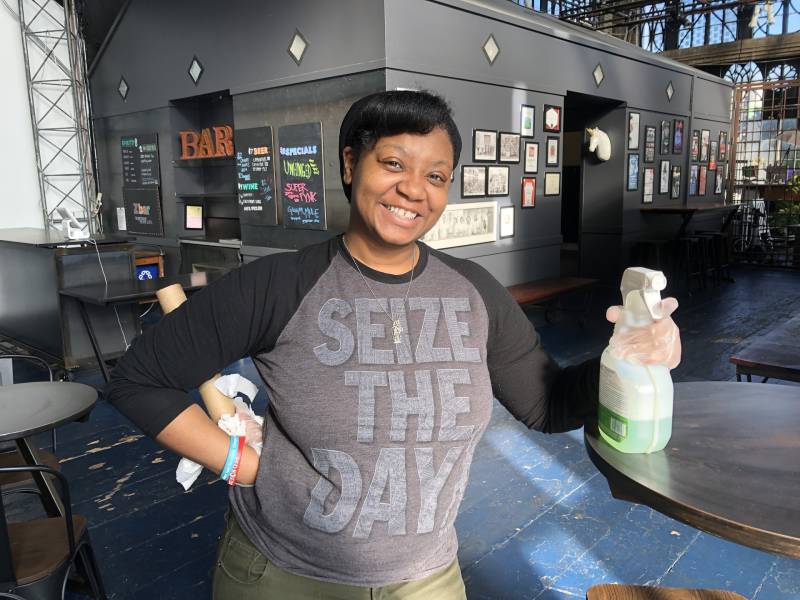
As for the arts, if you have tickets to a show that’s canceled, and can afford it, don’t file for a refund. Donate the ticket money to the artist or the theater, which is going to need it to get through this lull. The people who depend on that work—artists, stagehands, sound engineers, musicians, caterers, ushers, the list goes on and on—have no income source for the foreseeable future. If you have the opportunity to pay for the many livestreamed performances that are popping up, do so.
All of these suggestions are tributaries of the same thematic river—the belief that deep down, we care about each other, even if we do not know each other.
Nobody can truly predict how bad this will get, or how long our lives will be upended. But looking at recent history—especially with the wildfires in my hometown—I’ve seen this belief play out time and time again. People want to help.
Until the curtain rises again, we are still in this together.

Is your community affected by the coronavirus? Let us know below.
